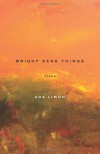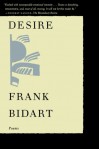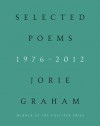1
Followers
29
Following
Seanachie: A Boston Irish Storyteller and Part-Time Shaman
Books about place, magic, Faeries, Ireland, sex, God, and love
Currently reading
New Orleans as It Was
New Orleans after the Civil War
Visions and Beliefs in the West of Ireland (complete: First & Second Series)
Bright Dead Things: Poems
The Subtle Art of Not Giving a F*ck: A Counterintuitive Approach to Living a Good Life
Desire: Poems
Selected Poems 1976-2012
An Anthology of Modern Irish Poetry
I Am An Executioner: Love Stories
An Artist of the Floating World
Do Not Say We Have Nothing
 This Booker prize short listed novel is a story of fragments and shards, stops and starts, texts and copies, mathematics and unfinished symphonies and words with dual meanings. Ostensibly, this is the tale of several related families set in and around the cultural revolution in China, but also springing forward to Tiananmen Square in 1989 and Canada in the early 90s. It describes the struggles in particular of Sparrow, a talented composer, who--in order to preserve his family--destroys his own work and is put to laboring in a factory (and dreaming of a perfect silence). It also describes his lover-in-all-but-physical-deed Kai, who has a “purer” peasant family history and a quicker turn to the Red Guard and thus prospers as a musician in Beijing despite the revolution, yet loses his soul.
This Booker prize short listed novel is a story of fragments and shards, stops and starts, texts and copies, mathematics and unfinished symphonies and words with dual meanings. Ostensibly, this is the tale of several related families set in and around the cultural revolution in China, but also springing forward to Tiananmen Square in 1989 and Canada in the early 90s. It describes the struggles in particular of Sparrow, a talented composer, who--in order to preserve his family--destroys his own work and is put to laboring in a factory (and dreaming of a perfect silence). It also describes his lover-in-all-but-physical-deed Kai, who has a “purer” peasant family history and a quicker turn to the Red Guard and thus prospers as a musician in Beijing despite the revolution, yet loses his soul.In some ways, Thien's writing is unconventional with quick shifts of point of view. In others, it is quite conventional, and symbols hit you on the head like cartoon anvils. However, the novel grew on me, as the restrained passions (even at times passivity) of the characters acquired over time a narrative momentum and quiet emotional charge. Terror, denunciations, humiliations, beatings, false confessions, disappearances, vicious mobs, and wasted lives are part and parcel of this novel, so it is no easy read, but there are survivors and there are heroes and a host of well-drawn secondary characters.











